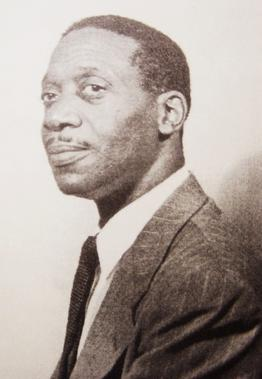More languages
More actions
Harry Haywood | |
|---|---|
 | |
| Born | February 4, 1898 South Omaha, Nebraska, United States |
| Died | January 4, 1985 |
| Nationality | New Afrikan |
| Political orientation | Marxism–Leninism Anti-racism |
| Political party | CPUSA (1925–1959) CP(ML) (1959–1985) |
Harry Haywood (February 4, 1898 – January 4, 1985) was a Statesian communist who served on the Central Committee of the CPUSA from 1927 to 1938 and on the Politburo from 1931 to 1938. He defined the African diaspora in the United States as an oppressed nation with the right to self-determination and helped author Comintern resolutions on the African-American national question while living and studying in the Soviet Union. He served in both the Spanish Civil War and World War 2 respectively as both a Political Commissar with a Statesian International Brigade and a Merchant Navy sailor, having felt it his duty as a Communist to do all he can to assist the Soviet Union and the world Communist movement. After World War 2, Haywood, who had been distanced from political developments within the CPUSA found that Revisionist and Opportunist currents had seized control of the Party and spent much time and effort attempting to correct the errors of the Statesian Communism movement from within and without the Party. He became involved with initiatives such as the New Communist movement to become the leader of the Communist Party (Marxist–Leninist), which followed Mao Zedong Thought.[1] among other such actions.
Life and work
Early Life
Harry Haywood was born in city of South Omaha within the state of Nebraska of the United States, on February 4, 1898. The youngest of three children, born to Harriet Hall nee Thorpe and Haywood Hall, his siblings were his brother Otto, born May 1891 and sister Eppa, born December 1896.[2] Both his parents were former slaves freed during their childhood by the Emancipation Proclamation forcibly expropriating the rebellious Confederate States of their slaves.
References
- ↑ "On his 125th birthday, read Harry Haywood on Black power and the fight for socialism" (2023-02-04). Fight Back! News. Retrieved 2023-02-05.
- ↑ Harry Haywood (January 1, 1978). Black Bolshevik: 'Child of Slaves; https://en.prolewiki.org/wiki/Library:Black_Bolshevik#A_Child_of_Slaves'.
